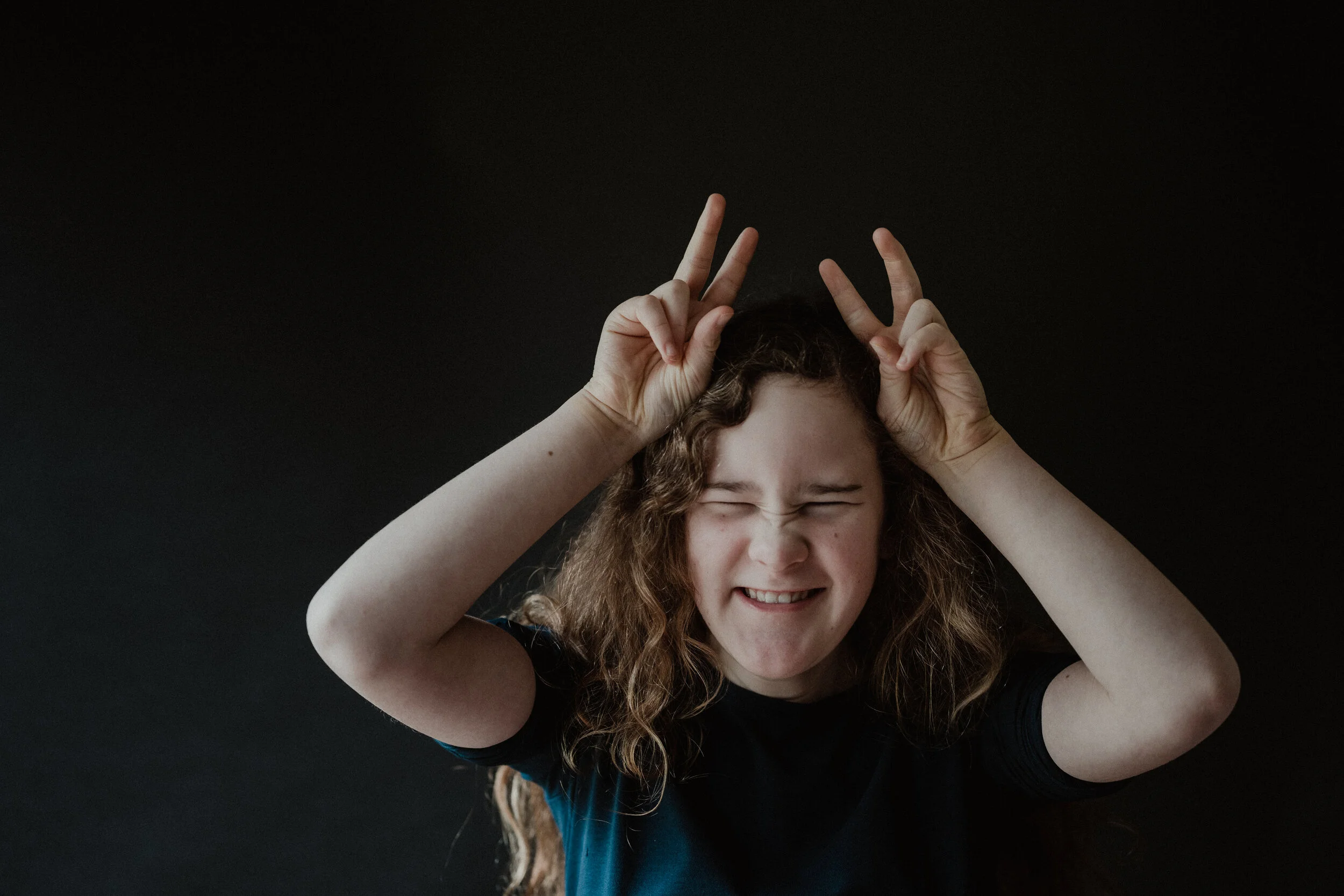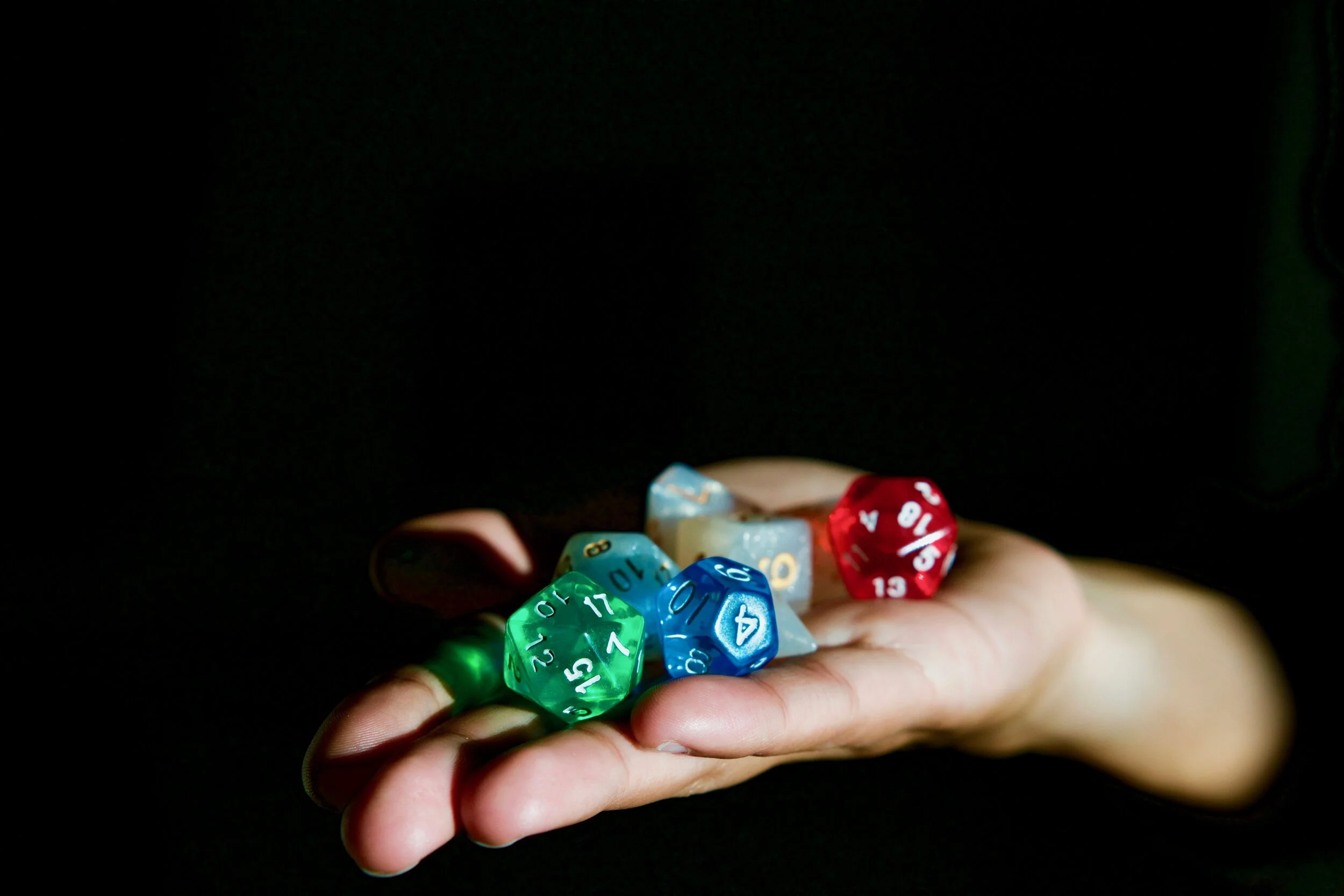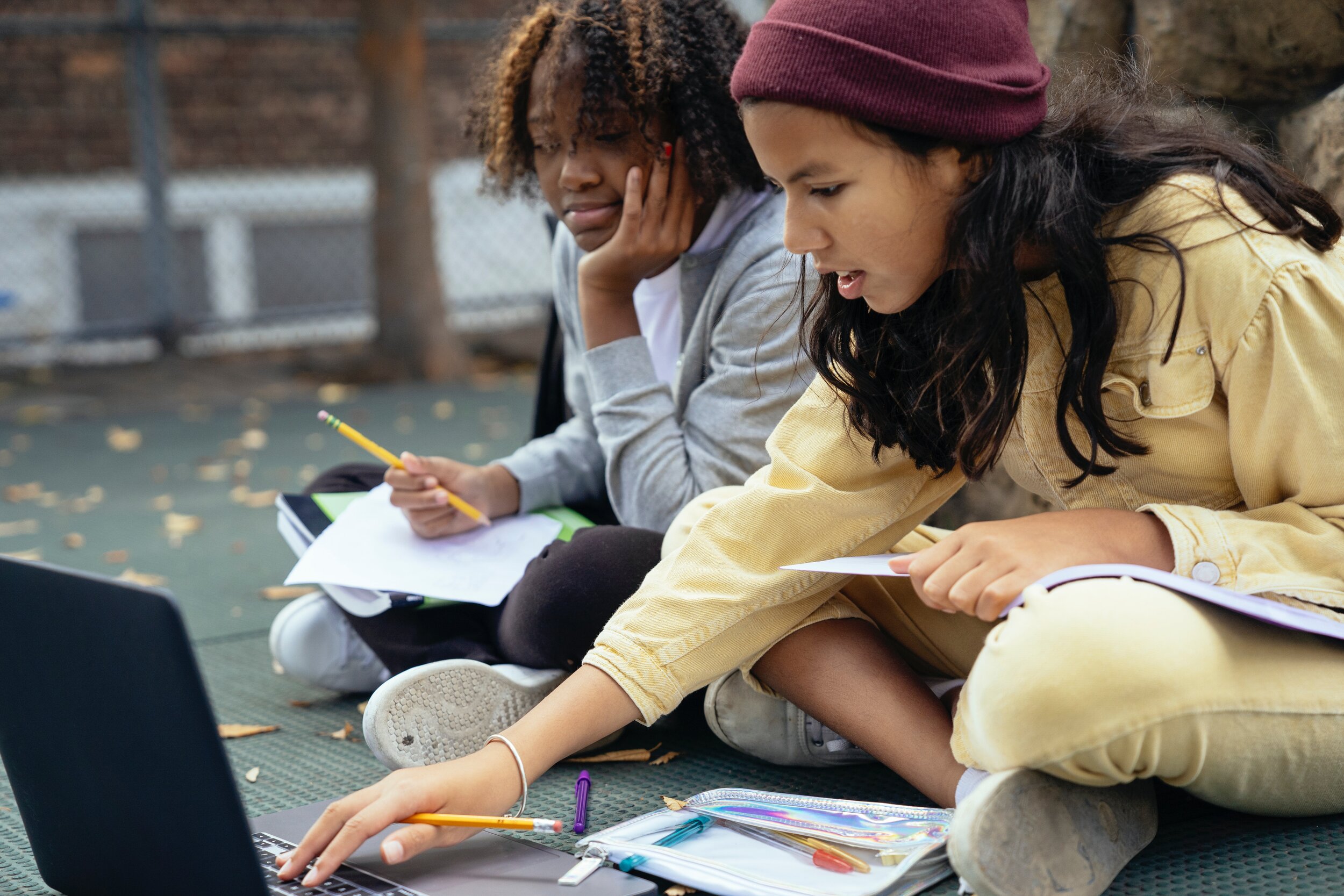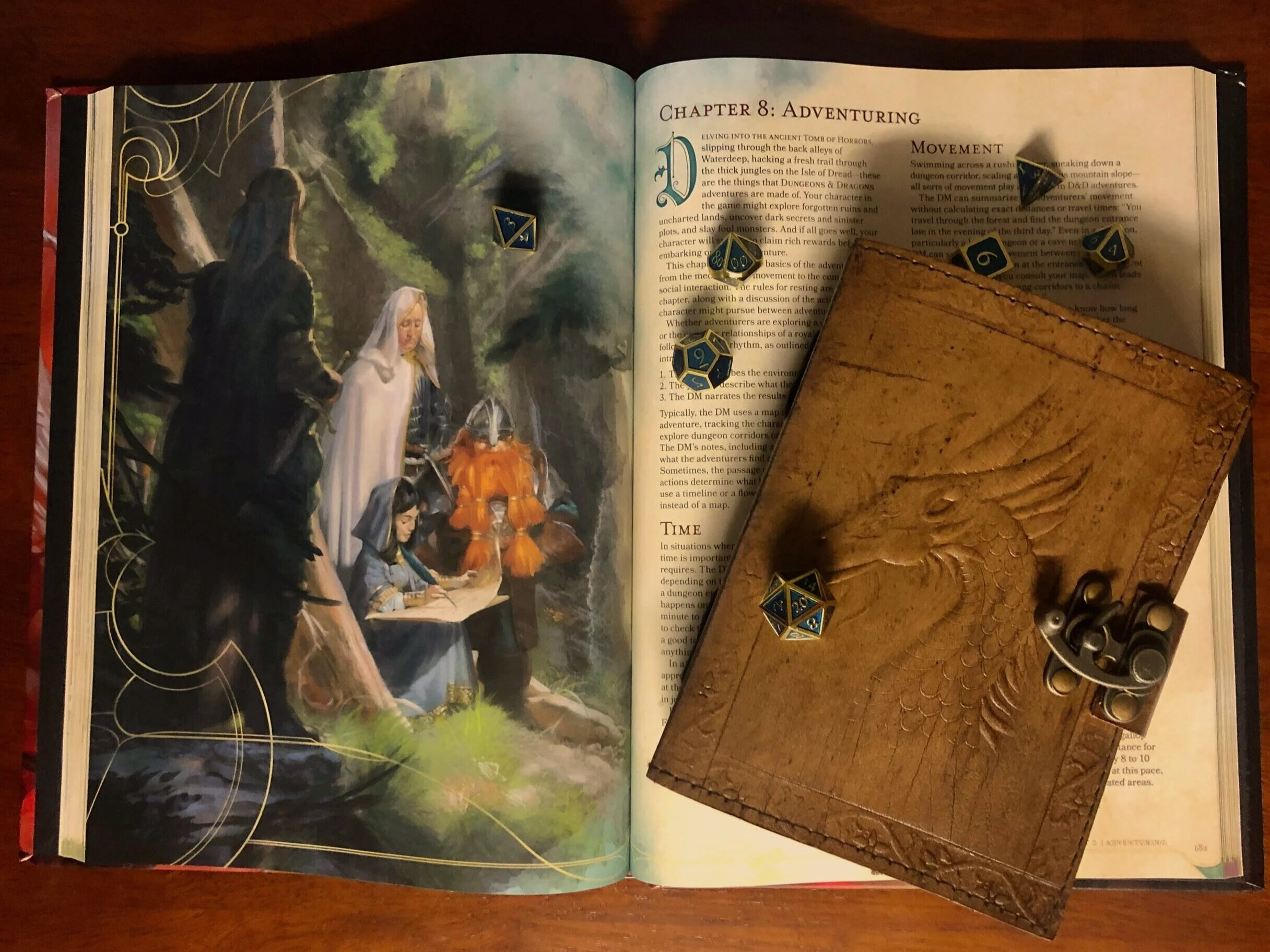Have you ever wondered what help is available for kids outside of individual talk therapy? Social distancing has made many of us acutely aware of how important it is for kids to be around other kids. If you’re trying to find ways for your child to stay connected to peers during another few months (or more!) of online school, I want to introduce you to a quirky new kind of therapy you may not have heard of before. In this post, I’ll be sharing a little about how Dungeons & Dragons can be used in therapy groups, and how to tell if this approach could be a good fit for your child.
What Happens in a Dungeons & Dragons Therapy Group?
Dungeons and Dragons is a little bit like a choose your own adventure book come to life. Each player in D&D creates a character with their own unique strengths, weaknesses, and magical powers. These characters work together to navigate a fantasy world, solve problems, and generally get up to mischief and adventure.
Rather than following a pre-set story or rules, D&D players are making up their own story as they go. They’re helped in this by a “Dungeon Master”, who acts like a referee and emcee in the game. The dungeon master sets the scene for the players, gives them problems to solve, and helps them to build a magical world. A roll of the dice determines how successful the player is at whatever they’re trying to do, which adds an element of surprise to the game.
Dungeons and Dragons is collaborative, not competitive, and it requires tons of creative problem solving. This makes it a great fit for therapy groups, and therapists around the country have started incorporating D&D into group therapy sessions with kids and adults. Dungeons and Dragons is a great way to meet new people, practice communication and teamwork, and experience the satisfaction that comes from learning a new skill.
Is Dungeons & Dragons OK for Kids?
The name “Dungeons and Dragons” sounds a little…sinister. It conjures up images of a game that is heavy on gore and may not be suitable for children. If this is the reaction you had when you first heard about D&D, you aren’t alone! Just like rap music and video games, there was some controversy in the 80s about whether D&D was too violent for kids.
Name aside, there is nothing inherently age-inappropriate about D&D for kids. The game is all about imaginative play, and it doesn’t even have to include dungeons or dragons: stories have been set in all sorts of cool, child-friendly fantasy worlds, from outer space to fairy forests to fantasy worlds inspired by Studio Ghibli movies. Because the game is fully customizable, it’s up to every group to decide what content is okay and what is not, and how to handle violence.
Today, we know that there are many ways in which role-playing games like D&D support child development. Game play requires both math and reading skills, encourages teamwork and turn-taking, and gets kids see the world through someone perspective, which helps to develop empathy. Dungeons and Dragons promotes all sorts of positive social skills that kids can apply not just to the game, but to their day-to-day lives.
Who Is a Good Fit for Dungeons and Dragons Groups?
So, what kind of kid might enjoy playing D&D? Is it only for children who already really into nerd culture? Is it better for extroverts or introverts? What about kids who have never played the game before—could they figure it out in a group setting?
Personally, when I started playing D&D, I was not very familiar with anime, video games, or any other aspect of “nerd culture.” I had also never played the game before, and the rules seemed a little intimidating at first. Now that I’ve played the game for a while, I think the only skills you really need to be a great D&D player are imagination, creativity, and a willingness to play.
Here are a few signs or traits that your child might be an excellent fit for a Dungeons & Dragons therapy group:
Your child loves getting lost in fantasy worlds like Harry Potter, Lord of the Rings, or Star Wars
Your child is a “theater kid” who enjoys acting or performing
…or, on the flip side, your child is shy and would love to make new friends, but isn’t sure how to reach out to new people
Your child is imaginative and was always great at pretend play
Your child would like an opportunity to practice teamwork, verbal communication, and taking turns
You think your child could use the self-esteem boost that comes from mastering and succeeding at a new activity
Both extroverts and introverts can excel at Dungeons & Dragons, as long as they are willing to step a bit outside of their comfort zone to play around with new friends.
How Old Do Kids Need to Be to Play Dungeons and Dragons?
I usually see 12 being recommended as the ideal age to start playing D&D. The rules can be a little complicated, and kids need to be able to think abstractly in order to enjoy playing the game. In my own D&D group, I work with middle school aged kids from ages 11-14.
The right age to start playing depends a lot on your individual child. If your elementary school-aged kid has been playing other tabletop games for years and is a fantasy story fan, she may be ready to dive into D&D. It’s also possible to simplify the rules of D&D to accommodate younger players, which can be a fun option for families with mixed-age kids who would like to play the game together.
More Information on Dungeons & Dragons Therapy Groups for Children
If you want to experience some of the therapeutic benefits of D&D for yourself, check out Young Dragonslayers. This program started as part of my therapy practice, and has grown to offer online D&D to kids across the country with the goal of practicing social-emotional skills in a friendly, inclusive environment.
For further reading, check out my earlier blog post on the mental health benefits of D&D as well as Geek & Sundry’s helpful article about D&D therapy, which focuses on how the game can be useful for kids with social anxiety.
If you have any questions or you’d like to learn more about counseling, you are always welcome to contact me.












